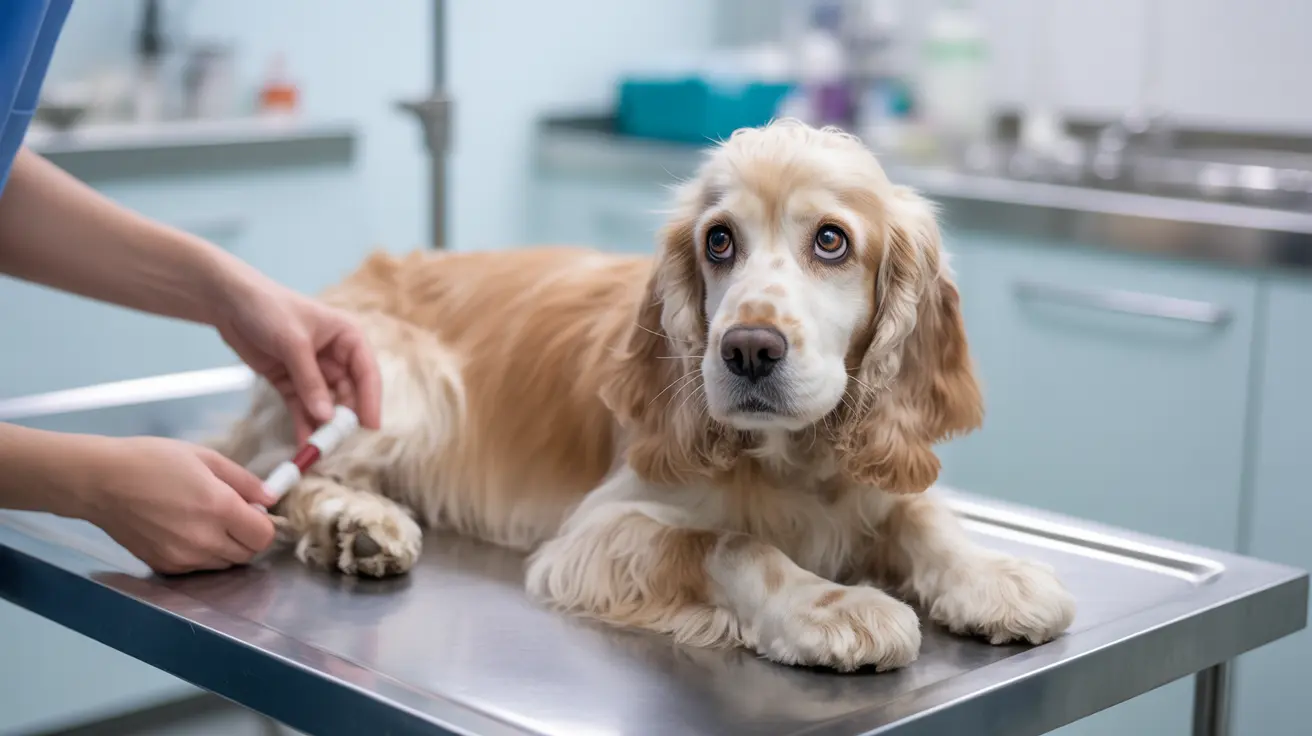Immune-Mediated Hemolytic Anemia (IMHA) in dogs is a serious autoimmune condition that requires immediate veterinary attention. When a dog develops IMHA, their immune system begins attacking and destroying their own red blood cells, leading to potentially life-threatening complications. Understanding this condition is crucial for dog owners, as early recognition and treatment can significantly improve outcomes.
What is IMHA in Dogs?
IMHA occurs when a dog's immune system mistakenly identifies its own red blood cells as threats and begins destroying them. This destruction can happen either inside blood vessels (intravascular hemolysis) or in other organs like the liver and spleen (extravascular hemolysis). The condition can develop rapidly, sometimes within days, making it a true medical emergency.
There are two main types of IMHA in dogs:
- Primary IMHA: Occurs without any underlying cause
- Secondary IMHA: Triggered by other conditions such as infections, cancer, or medications
Common Signs and Symptoms
Dogs with IMHA typically show several distinctive symptoms that owners should watch for:
- Pale or yellow gums
- Extreme lethargy and weakness
- Rapid breathing and increased heart rate
- Loss of appetite
- Dark-colored urine
- Fever
- Collapse or fainting episodes
Diagnosis and Testing
Veterinarians use several diagnostic tools to confirm IMHA:
- Complete blood count (CBC)
- Blood smear examination
- Coombs test
- Reticulocyte count
- Additional testing to identify underlying causes
Treatment Approaches
Treatment for IMHA in dogs typically involves multiple strategies:
Immediate Care
- Blood transfusions when necessary
- Hospitalization for intensive monitoring
- Oxygen therapy if needed
Long-term Management
- Immunosuppressive medications
- Anti-clotting medications
- Regular monitoring and blood tests
- Gradual medication adjustment
Prevention and Risk Factors
While IMHA cannot always be prevented, understanding risk factors is important:
- Certain breeds are more susceptible, including Cocker Spaniels and Springer Spaniels
- Middle-aged females are at higher risk
- Previous medical conditions or medications may increase risk
- Regular veterinary check-ups can help catch early signs
Long-term Prognosis
The prognosis for dogs with IMHA varies significantly based on several factors:
- Severity of the condition at diagnosis
- Speed of treatment initiation
- Response to initial therapy
- Presence of complications
- Overall health of the dog
Frequently Asked Questions
What are the first signs of IMHA (Immune-Mediated Hemolytic Anemia) in dogs?
The first signs typically include pale or yellow gums, extreme lethargy, weakness, rapid breathing, and loss of appetite. Some dogs may also show dark-colored urine and fever.
Which dog breeds are most at risk for developing IMHA?
Cocker Spaniels, Springer Spaniels, Poodles, Old English Sheepdogs, and Irish Setters are among the breeds most commonly affected by IMHA. However, any breed can develop the condition.
How is IMHA diagnosed and treated in dogs?
IMHA is diagnosed through blood tests, including CBC, blood smear examination, and Coombs test. Treatment typically involves immunosuppressive medications, blood transfusions when necessary, and supportive care.
Can dogs fully recover from IMHA, and what is the long-term prognosis?
Some dogs can achieve complete remission with proper treatment, while others may require ongoing management. The prognosis varies depending on factors such as early detection, response to treatment, and the presence of complications.
What can I do to help my dog at home if they have been diagnosed with IMHA?
Follow your veterinarian's treatment plan carefully, monitor your dog for any changes in symptoms, maintain a calm environment, and attend all follow-up appointments. Ensure your dog takes all prescribed medications and report any concerning changes to your veterinarian immediately.
Living with a dog diagnosed with IMHA requires dedication and careful monitoring, but with proper veterinary care and owner commitment, many dogs can achieve a good quality of life. Always consult with your veterinarian for personalized advice and treatment options for your pet.






